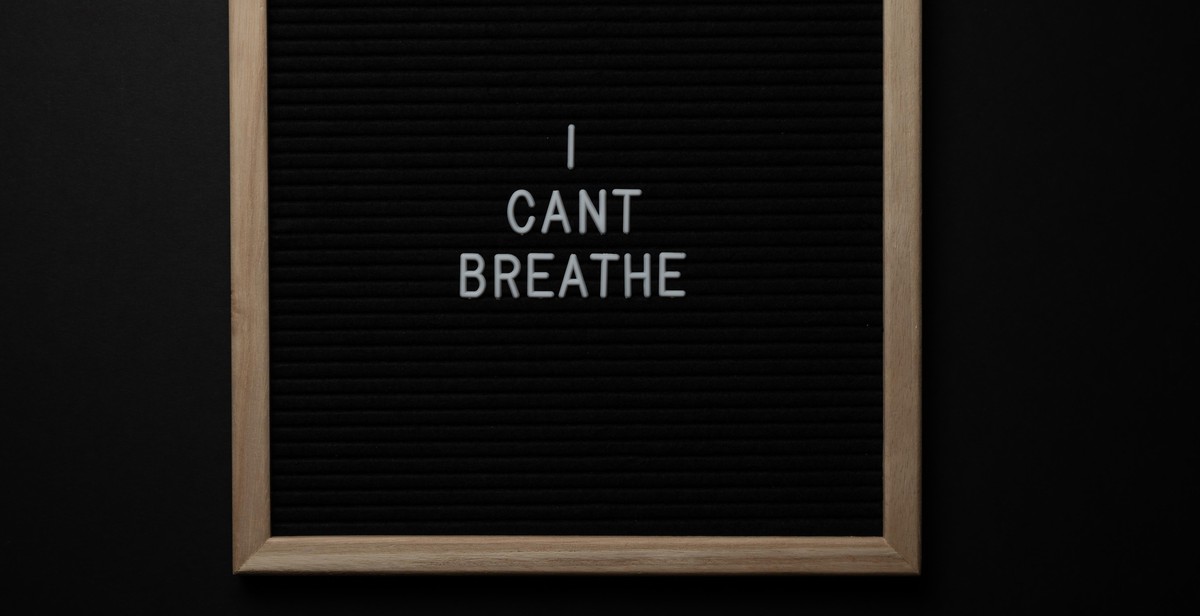Understanding Social Anxiety: From Causes to Coping Strategies
Social anxiety is a common mental health condition that affects millions of people around the world. It’s characterized by intense fear, nervousness, and self-consciousness in social situations, which can make it difficult for individuals to interact with others and perform everyday tasks.
In this comprehensive guide, we’ll explore the causes and symptoms of social anxiety, as well as effective coping strategies that can help you manage your symptoms and improve your overall quality of life.
The Causes of Social Anxiety
Social anxiety can be caused by a variety of factors, including genetics, brain chemistry, and life experiences. Research has shown that individuals with a family history of anxiety or depression are more likely to develop social anxiety than those without a family history.
Additionally, imbalances in certain neurotransmitters, such as serotonin and dopamine, can contribute to the development of social anxiety. Traumatic life experiences, such as bullying or emotional abuse, can also increase the risk of developing social anxiety.
The Symptoms of Social Anxiety
The symptoms of social anxiety can vary from person to person, but typically include feelings of intense fear, nervousness, and self-consciousness in social situations. Physical symptoms may also occur, such as sweating, trembling, and rapid heart rate.
Other symptoms of social anxiety may include avoidance of social situations, difficulty making eye contact, and excessive self-criticism.
Coping Strategies for Social Anxiety
- Cognitive-behavioral therapy
- Mindfulness meditation
- Exposure therapy
- Social skills training
- Medication
By using these coping strategies, individuals with social anxiety can learn to manage their symptoms and improve their quality of life. It’s important to remember that social anxiety is a treatable condition, and with the right support and resources, individuals can overcome their fears and build fulfilling relationships.

What is Social Anxiety?
Social anxiety is a mental health condition characterized by an intense fear of social situations. People with social anxiety disorder, also known as social phobia, may experience overwhelming anxiety and self-consciousness in everyday social situations, such as speaking in public, meeting new people, or attending social gatherings.
Defining Social Anxiety
Social anxiety is more than just feeling shy or nervous in social situations. It is a persistent and irrational fear that can significantly impact a person’s daily life. Individuals with social anxiety disorder may avoid social situations altogether or endure them with extreme distress.
Social anxiety can manifest in different ways, such as:
- Fear of being judged or criticized by others
- Worrying about embarrassing oneself in front of others
- Avoiding eye contact or physical touch
- Fear of public speaking or performing in front of an audience
- Avoiding social situations or events
Symptoms of Social Anxiety
The symptoms of social anxiety disorder can be physical, emotional, and behavioral. Some common symptoms include:
| Physical Symptoms | Emotional Symptoms | Behavioral Symptoms |
|---|---|---|
| Rapid heartbeat | Intense fear or dread | Avoiding social situations |
| Sweating | Feeling self-conscious or embarrassed | Enduring social situations with extreme distress |
| Trembling or shaking | Worrying excessively before or after social events | Drinking alcohol or using drugs to cope |
| Nausea or stomach upset | Feeling like others are judging or scrutinizing them | Difficulty making eye contact or speaking up |
It is important to note that social anxiety disorder is a treatable condition. With the right therapy, medication, and coping strategies, individuals with social anxiety can learn to manage their symptoms and improve their quality of life.

Causes of Social Anxiety
Social anxiety is a mental health disorder that affects millions of people worldwide. It is characterized by intense fear, nervousness, and self-consciousness in social situations. While the exact cause of social anxiety is unknown, researchers have identified several factors that may contribute to its development. These include genetics, brain chemistry, and environmental factors.
Genetics
Studies have shown that social anxiety disorder may run in families. This suggests that there may be a genetic component to the disorder. People who have a first-degree relative with social anxiety disorder are more likely to develop the condition themselves. Researchers are still exploring the specific genes that may be involved in social anxiety, but it is believed that multiple genes may play a role.
Brain Chemistry
Research has also shown that social anxiety disorder may be linked to imbalances in certain neurotransmitters in the brain, such as serotonin, dopamine, and norepinephrine. These neurotransmitters help regulate mood, and imbalances can lead to symptoms of anxiety and depression. In addition, the amygdala, a part of the brain that controls fear and anxiety, may be overactive in people with social anxiety disorder.
Environmental Factors
Environmental factors can also contribute to the development of social anxiety disorder. Traumatic or stressful life events, such as bullying, abuse, or neglect, can increase the risk of developing the disorder. In addition, growing up in a family or community where social interactions are not valued or are viewed negatively can also contribute to social anxiety. Cultural and societal factors, such as unrealistic expectations of social performance or pressure to conform to social norms, can also play a role.
| Causes of Social Anxiety | Examples |
|---|---|
| Genetics | Family history of social anxiety disorder |
| Brain Chemistry | Imbalances in neurotransmitters such as serotonin and dopamine |
| Environmental Factors | Stressful life events, negative social interactions, cultural and societal factors |
Understanding the causes of social anxiety can help people with the disorder and their loved ones better understand the condition. It can also help inform treatment options, such as therapy and medication, that can help manage symptoms and improve quality of life.

Diagnosis and Treatment of Social Anxiety
Diagnosing Social Anxiety
Social anxiety disorder (SAD) is a common mental health condition that affects millions of people worldwide. The disorder is characterized by an intense fear of social situations, which can lead to avoidance behavior and significant impairment in daily life. Diagnosing SAD typically involves a comprehensive assessment by a mental health professional, such as a psychiatrist or psychologist.
During the assessment, the clinician will conduct a thorough evaluation of the patient’s symptoms, medical history, and current life circumstances. The clinician may also use various diagnostic tools, such as the Social Phobia Inventory (SPIN) or the Liebowitz Social Anxiety Scale (LSAS), to help confirm the diagnosis.
Treatment for Social Anxiety
Fortunately, social anxiety disorder is a highly treatable condition. There are several effective treatment options available, including cognitive-behavioral therapy (CBT), medication, and self-help strategies.
| Treatment | Description |
|---|---|
| Cognitive-behavioral therapy (CBT) | CBT is a type of talk therapy that helps individuals identify and change negative thought patterns and behaviors. CBT for SAD typically involves exposure therapy, where the patient gradually confronts feared social situations in a safe and controlled environment. |
| Medication | Antidepressants, such as selective serotonin reuptake inhibitors (SSRIs), are often prescribed to treat social anxiety disorder. These medications can help alleviate symptoms of anxiety and improve mood. |
| Self-help strategies | Self-help strategies, such as relaxation techniques, mindfulness meditation, and exercise, can also be effective in managing symptoms of social anxiety disorder. These strategies can help individuals reduce stress and improve their overall well-being. |
It’s important to note that treatment for social anxiety disorder is highly individualized. What works for one person may not work for another. Therefore, it’s essential to work closely with a mental health professional to develop a personalized treatment plan that addresses your specific needs and goals.
Coping Strategies for Social Anxiety
Social anxiety can be a debilitating condition that affects many people. Fortunately, there are several coping strategies that can help manage the symptoms of social anxiety:
Mindfulness and Relaxation Techniques
Mindfulness and relaxation techniques, such as deep breathing, progressive muscle relaxation, and meditation, can help calm the mind and reduce anxiety. These techniques can be practiced daily for maximum benefit.
Cognitive Behavioral Therapy
Cognitive Behavioral Therapy (CBT) is a type of therapy that focuses on changing negative thought patterns and replacing them with more positive ones. CBT can be helpful in treating social anxiety by helping individuals identify and challenge their negative thoughts about social situations.
Lifestyle Changes
Lifestyle changes, such as regular exercise, healthy eating, and getting enough sleep, can also help manage social anxiety. Exercise can help reduce anxiety and improve mood, while a healthy diet and adequate sleep can improve overall well-being.
It is important to remember that coping strategies for social anxiety may vary from person to person. It may take some trial and error to find the strategies that work best for you. Seeking the help of a mental health professional can also be beneficial in managing social anxiety.
